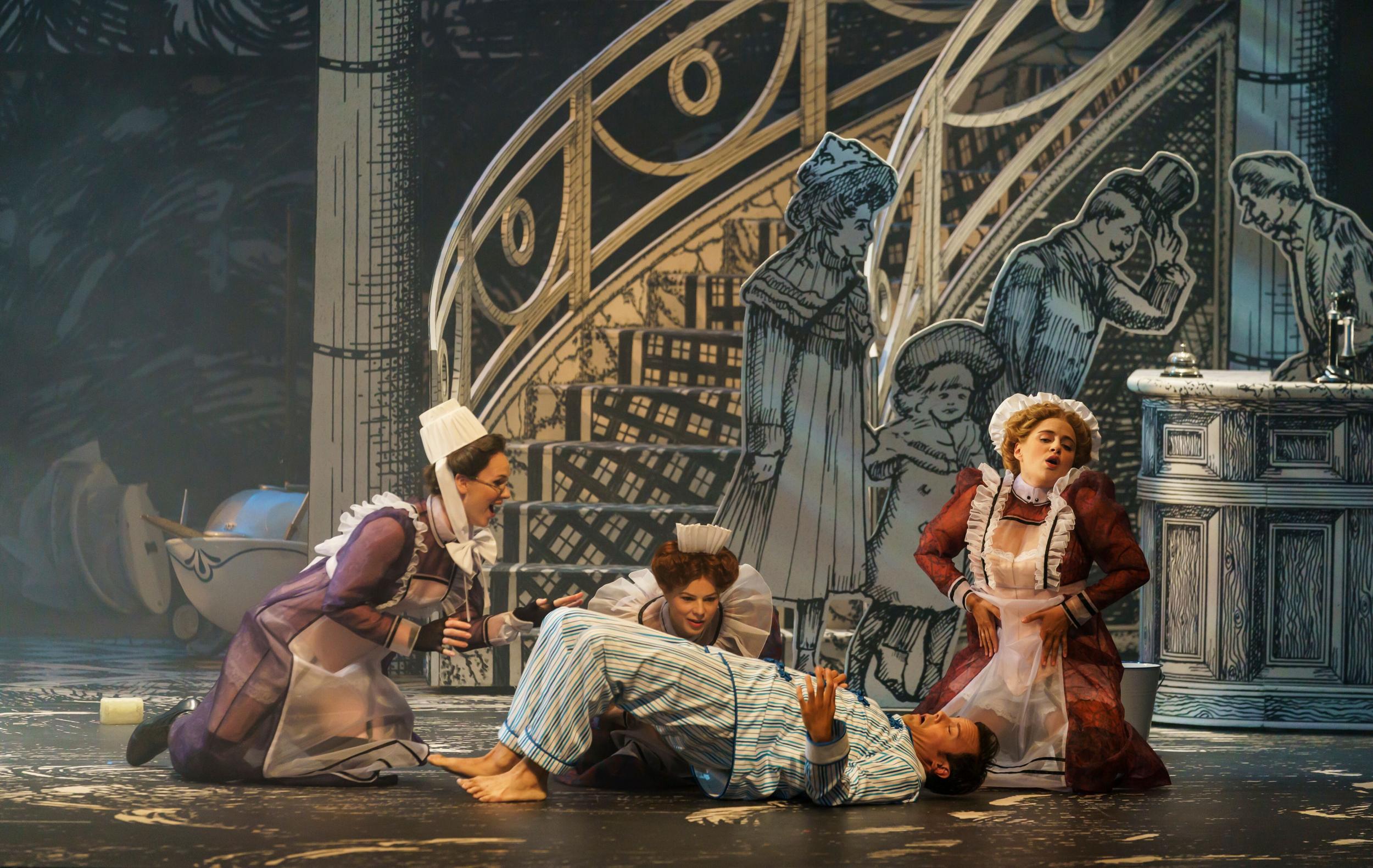Die Zauberflöte, Glyndebourne Festival Opera review: The show breaks free of director Renaud Doucet’s contrived, PC rewrites
Running a politically correct lawnmower over the classics often wrecks them – but in many ways this is a hugely enjoyable show

In his pre-show sales pitch, the French-Canadian director-choreographer Renaud Doucet announced, with a foot-stamping petulance, that Mozart’s Magic Flute is “a racist and mostly very sexist opera, which is something we couldn’t accept”. For this reason he and his designer André Barbe have spent the last 15 years turning down invitations to stage it.
But now they have done so, in ways that satisfy their didactic impulses. They’ve set it in a hotel in Vienna at the turn of the 19th century, with suffragists riding high and with the (for them problematic) Queen of the Night as its formidable proprietor; the tyrant Sarastro becomes a head chef who runs the kitchen along Freemasonic lines. This latter detail, they think, confers nobility on the Queen’s constant anger: this way she becomes a fighter for women’s rights.
Thus have Doucet and Barbe satisfied themselves that the libretto’s non-PC dialogue need not be cut as it is by other squeamish directors. Meanwhile the problem of “wicked Moor” Monostatos – depicted as a sub-human black rapist – is solved by putting him in charge of the hotel’s boilers; his skin is white, but blackened with soot. All very neat.
And all rather old hat. Running a PC lawnmower over the classics is a strategy that is often tried but always ends in castrating them. One assumes Doucet and Barbe would feel obliged to meddle with everything from Madam Butterfly and Turandot to The Tempest and The Wizard of Oz. Updating a work of art is one thing, contradicting its animating spirit quite another. Moreover, one assumes the creative duo haven’t got round to reading the essays in their own programme, one of which, by David Cairns, gracefully demolishes the myth that Die Zauberflöte is a misogynistic work.
However, we are where we are, and it makes no sense not to make the best of things: this is in many ways a hugely enjoyable show, not least because, halfway through, it breaks free of the contrived scheme Doucet and Barbe have tried to impose on it, and lifts off into the empyrean as a piece of free-flowing fantasy. Mozart composed it for performance not in the straitlaced Burgtheater, but in the Viennese popular theatre whose freewheeling atmosphere he relished, and it’s in that spirit that this production bowls along.
Choreography based on the Japanese bunraku principle – half-size dolls manipulated by on-stage handlers – ensures that the stage is at every moment bursting with sight-gags. And if some of the effects are just frivolous – the “ordeals” by fire and water are kitchen conjuring tricks – others are magnificent, as when the male-voice modal hymn is accompanied by giant puppets filling the stage.
And there are some outstanding performances. David Portillo’s sweetly sung Tamino is complemented by Sofia Fomina’s forceful Pamina, whose singing gains in beauty as the evening progresses; Björn Bürger’s Papageno is a commanding comic creation, while Caroline Wettergreen as Queen of the Night atones for some weird top notes in her first aria with some lovely singing later on. Jörg Schneider’s Monostatos makes an engaging pantomime villain; Michael Kraus’s Speaker has eloquent authority, and Brindley Sherratt conveys majestic power through the concentrated stillness of his Sarastro. After an under-energised start, Ryan Wigglesworth and the Orchestra of the Age of Enlightenment find the right momentum to carry them through.
Join our commenting forum
Join thought-provoking conversations, follow other Independent readers and see their replies
Comments